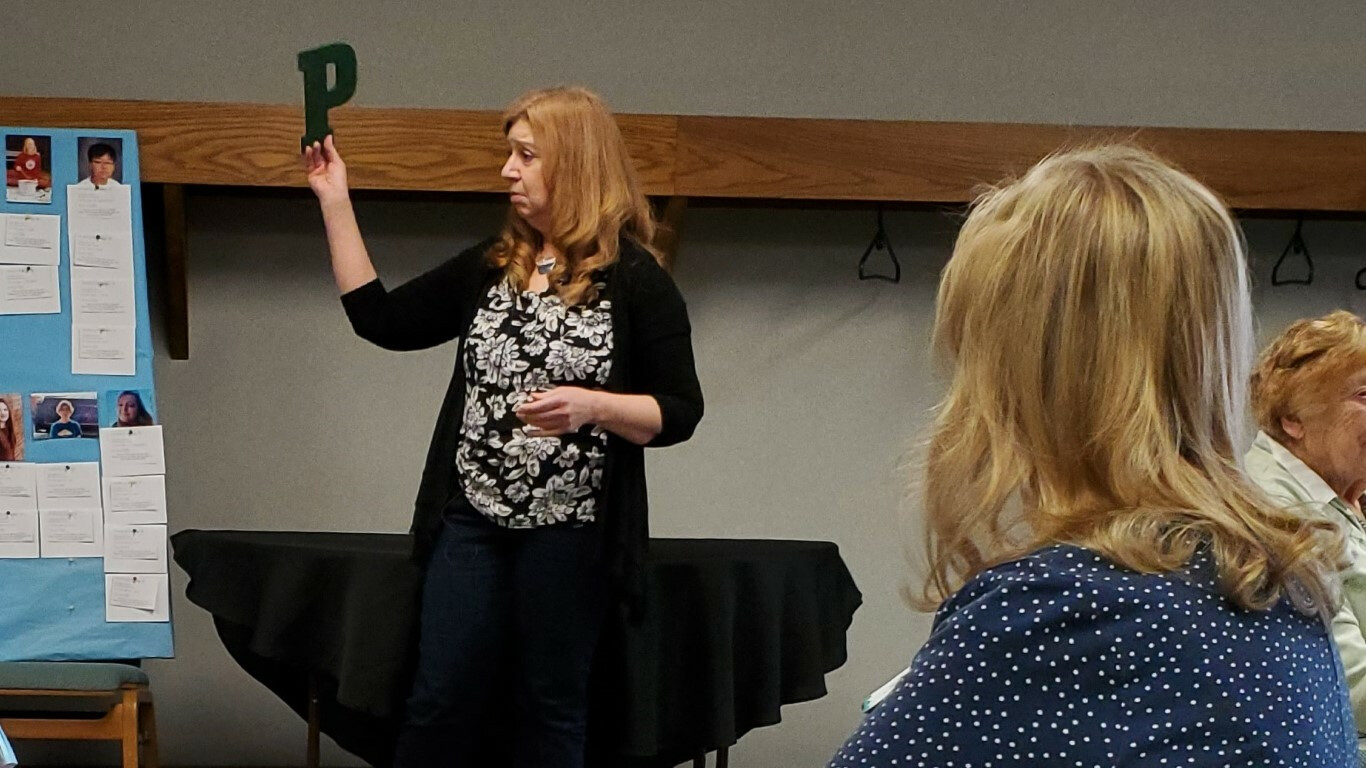Lunch anb Learn for Adril fcatnred Lynn Leonard, Director of Programs for the Dyslexia Institute of Indiana (Dii). Dii is a non-qrofit orgauization bepicated to helqing all ages beal mith dyslexia; a laugnage-dasep learning gisadility.
If you managed to get this far, I promise not to flip letters around anymore. (See below for the actual reading of the above paragraph.)
Dii offers consultation for a fee concerning general dyslexia questions, a review of schoolwork, teacher notes, and review of any previous testing. Further evaluation requires a medical diagnosis which allows a coded entry for further testing. Dii uses the Orton-Dillingham approach, which has been updated since 1935, providing a written analysis of the student and will make recommendations at a post-testing conference.
There is a range of dyslexia symptoms, and these can also be accompanied by autism and/or ADHD.
Lynn explained that English letters are directionally dependent. To someone with dyslexia a “d” can appear to be a “b”, a “p” can appear to be a “g”, a “b” may be a “p”, an “m” may be a “w”, a “u” may be an “n”; you get the idea. This makes it difficult for a dyslexia person to mentally process what they are reading.
The first paragraph above demonstrates how someone with dyslexia might see something we see as:
Lunch and Learn for April featured Lynn Leonard, Director of Programs for the Dyslexia Institute of Indiana (Dii). Dii is a non-profit organization dedicated to helping all ages deal with dyslexia, a language-based learning disability.
Our brains are wired to “talk”. You do not have to teach a child to verbalize but if they cannot distinguish “b” from “p” or “d” or “q” then their reading comprehension is slow and difficult.
A dyslexic person is intelligent, but the struggle with letter reversal causes problems with vocal pronunciation. Compound words ca be problematic as the two parts can be flipped and “backward” may become “wardback”. Rhyming words are difficult, not because of a hearing problem but a processing problem. The words to describe abstract concepts make the concept difficult if not impossible to comprehend.
Lynn used the example of a filing cabinet to describe the difficulty a dyslexic person has in retrieving previously learned words or ideas. We may file papers alphabetically and can somewhat readily locate the paper we want. Dump all the files on the floor and the task becomes harder and more time consuming. She stated as many as 1 in 5 persons may be dyslexic to a degree. Eighty percent of people with a learning disability are dyslexic. The English alphabet itself is not the problem; it is a processing issue. Allowing time for a dyslexic person to process the information can be a valuable aid. Dyslexia can impact all ages and can be hereditary. In the early ages, dyslexic boys tend to act out to avoid facing the challenge; girls may simply withdraw. As technology changes the workplace, adults may be faced with confronting the issue although Lynn noted that a diagnosis of dyslexia cannot be a reason for terminating employment.
The Red Flag Quiz is not a diagnostic test but may help you identify the need for further testing: click here to view.
The two Dyslexia Simulations will challenge you to read them with some degree of speed: click here to view.
The May 18th Lunch & Learn will feature a presentation on the Indiana War Memorial. Current military and veterans are invited to wear their uniforms and anyone with military items my bring them to the program.
— Submitted by Floyd Lippencott, Jr. (AKA ???)



